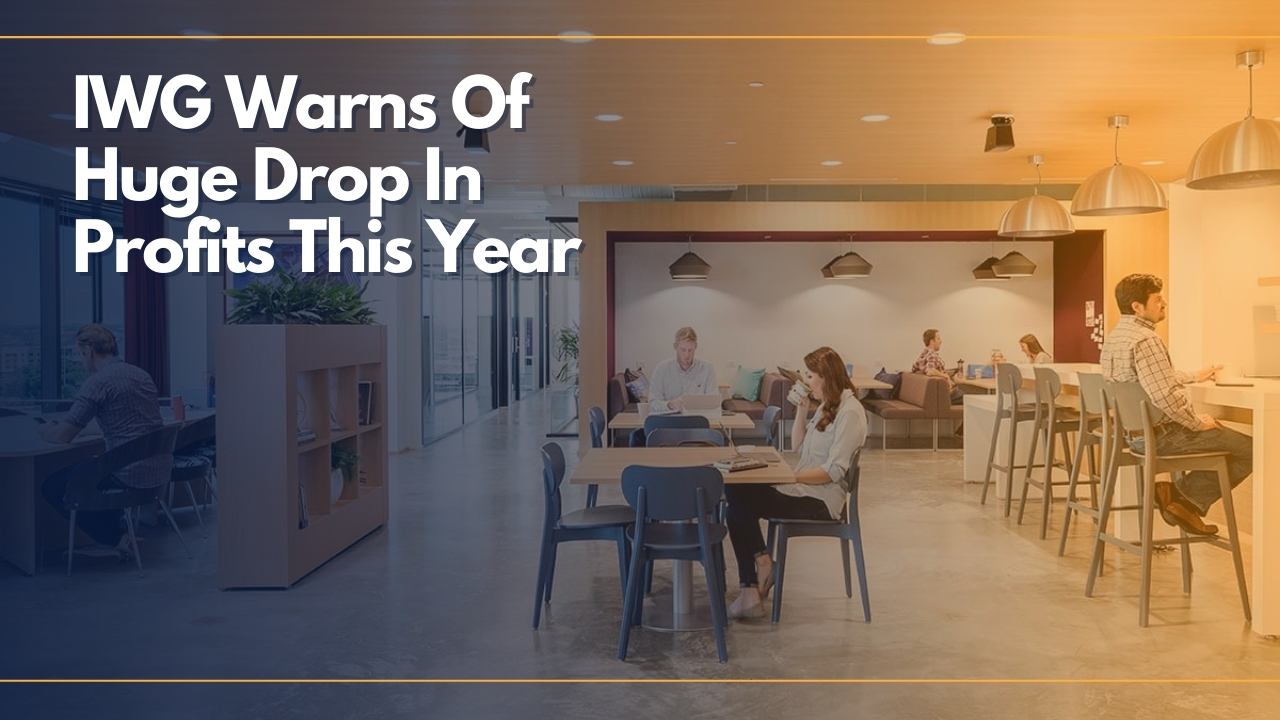- Despite early optimism, IWG is expecting profits to be “well below” 2020 levels.
- Recovery has been slower than expected, which has led to a 15% drop in shares.
- However, IWG is betting on hybrid work models – and its confidence is paying off.
IWG told investors yesterday that it expects its profits to be “well below” 2020 levels. The company is blaming global lockdowns and new COVID-19 strains for the drop in profits.
“Whilst we have continued to see strong recovery in some of our markets since our first quarter trading update, including positive occupancy momentum in the US, the overall improvement in occupancy across the whole group has been lower than previously anticipated,” the company said in a statement.
According to reports, IWG reported a more than $879 million loss in the first quarter of 2021, as recovery has been slower than expected. After the announcement, IWG shares fell by 15%.
Still, the flexible workspace company remains optimistic about the future and expects a strong recovery in 2022. IWG has reported that occupancy and enquiries are improving in some markets, with enquiries reaching pre-pandemic levels in some areas.
“It looks like the worst is behind us,” Mark Dixon, IWG’s CEO told the Financial Times in late April 2021, after the company experienced an uptick in occupancy levels in March and April.
Did IWG Get ahead of Itself?
Throughout the course of the pandemic, IWG has been focused on growth.
Last year, the company launched a £350 million (US$455 million) convertible bond issue to finance its expansion plans, which included franchise opportunities and acquisitions. In February of this year, IWG bought a stake in female focused coworking operator The Wing; the company has also announced several new franchise deals.
And yet, the news of profit drops begs the question: did the company jump the gun by expanding in the middle of pandemic, and should it have followed a more conservative path to growth?
The drop in earnings will likely impact IWG’s valuation and its current growth plans, even if just partially.
Then again, this isn’t Mark Dixon’s first rodeo with challenging office markets. Back when it was still known as Regus, IWG was able to outgrow the industry and climb out of a negative market successfully, so what’s to say they won’t be able to do so again?
IWG’s Bet is on Hybrid Work
IWG is betting on the increase in remote and hybrid work to boost demand for flexible workspaces in the future.
And they’re not too far off, especially considering the company has focused on opening flexible workspace centers in suburban and residential areas for years. One thing many experts agree on is that moving forward, people will want to work closer from home, even if it’s just a couple of days a week.
IWG’s bet on hybrid work is already paying off:
The flexible workspace company recently signed an agreement with Nestle to provide all Nestle’s China employees with access to IWG’s 3,500+ locations in the world. It also signed an agreement with Nippon Telegraph and Telephone Corporation to provide NTT’s 300,000 employees with access to its global portfolio of flexible space. And it also signed an agreement with Standard Chartered to provide 95,000 employees with office space.
The company expects its corporate customer pipeline to continue to grow in the coming months.
But IWG is not only betting on hybrid work to increase its revenue. It’s also been heavily focusing on signing franchise deals across several markets.
Most recently, the company announced franchise agreements in Detroit, London, Conakry, Libreville, Tripoli, Lomé, Thailand, Malaysia, Canada, and Australia, among others.
While in the short-term things don’t look as bright for IWG, the company is certainly playing the long game; a missed quarter is small potatoes if they are able to secure rapid growth at a discount to the future.
It’s certainly a gamble, and it remains to be seen whether it pays off for IWG. But the more square footage they have, the bigger their capacity to better service corporate clients in the hybrid future of work.


 Dr. Gleb Tsipursky – The Office Whisperer
Dr. Gleb Tsipursky – The Office Whisperer Nirit Cohen – WorkFutures
Nirit Cohen – WorkFutures Angela Howard – Culture Expert
Angela Howard – Culture Expert Drew Jones – Design & Innovation
Drew Jones – Design & Innovation Jonathan Price – CRE & Flex Expert
Jonathan Price – CRE & Flex Expert












